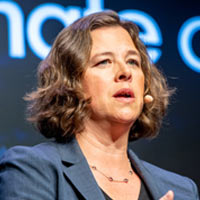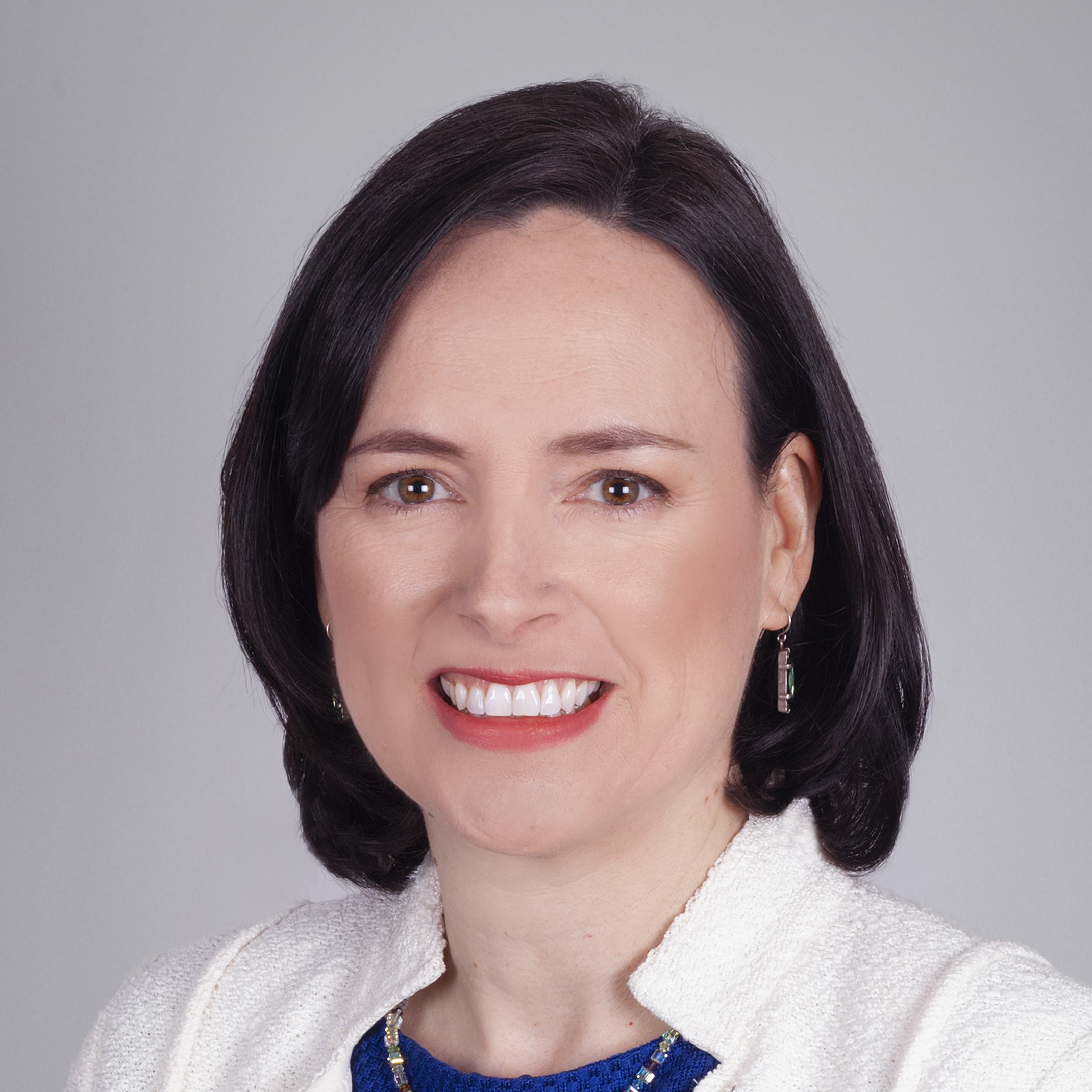With devastating wild fires and floods filling our news feeds, the consequences of a changing climate have rarely felt more acute or urgent. In the midst of Climate Week, Brown Advisory’s Karina Funk sat down with Kate Gordon, who leads climate policy for the state of California and is one of the world’s foremost authorities on the intersection of business and climate.
As investors, we are constantly looking for opportunities to mitigate climate risk and support climate solutions. If we can help improve outcomes for the people impacted by climate change, we can generate returns for all of our stakeholders—our clients, colleagues and communities. With California as an epicenter of both climate-based tragedy and innovation, Karina and Kate talk about the ongoing crisis, investing in solutions, and the state’s announcement this week to move toward selling only zero-emissions vehicles by 2035.
Listen and subscribe to our podcast from your mobile device:
Episode Introduction
Karina Funk: This week marked the start of autumn 2020, yet little of this fall season rings familiar. Whether you are sending kids back to school, or stretching out the final days of warm weather—many of our routines are unrecognizable amidst the backdrop of COVID-19. The pandemic has quashed what we once took for granted—like greeting a colleague with a handshake, or a care-free afternoon at the ballpark. And if the greatest loss in the last 6 months was a sense of normal—and not a family member, nor a home, nor a job-we were one of the lucky ones. Yet, while we all we struggle to make sense of what comes next because of COVID-19, it doesn’t mean the problems that came before COVID-19 have conveniently disappeared. And California is on fire to prove it.
Climate Change remains one of our world’s greatest threats. It makes fires, like the ones the West Coast is battling today, spread more quickly; it makes 100 year storms a more common occurrence; and it makes the gap in inequality that many Americans are impacted by, steeper. Some argue that the damage climate change will cause could make the COVID-19 chaos seem tame. While the fires, and the floods we increasingly see at the top of our news feeds has raised awareness of climate change, connecting the impacts of a warming planet to investment risks and opportunities is difficult and often neglected. But in this abnormal fall season, the fires that started in the West Coast are making their consequences felt around the world. What does a wildfire in California have to do with economic growth in the rest of the nation? How does all this impact global investors, and how can we focus on solutions without falling victim to alarm?
My name is Karina Funk and I’m a partner at Brown Advisory. We wanted to bring in someone who is uniquely qualified to address all angles of these seemingly intractable questions. We are honored to be joined by Kate Gordon a foremost authority at the intersection of clean energy and economic growth. Kate’s experience is not as observer; she is active as a thinker, a leader, and a do-er, working tirelessly to achieve a sustainable economic model given the practicalities of our incumbent infrastructures, cultures, industries, workforce skills--against all of the uncertain realities of climate, COVID, and whatever comes next. Today Kate directs the California Governor's Office of Planning and Research, is senior policy advisor to Governor Newsom on climate, and is a former member of our own Sustainable Investing Advisory Board here at Brown Advisory.
Guest

Kate Gordon
Director of the Governor’s Office of Planning and Research and Senior Advisor to California Governor Newsom on Climate
Kate Gordon has spent the past two decades working at the intersection of climate change, energy policy, and economic development. Gordon was appointed Director of the Governor’s Office of Planning and Research and Senior Advisor to the Governor on Climate by Governor Gavin Newsom on January 7, 2019. Trained as a community organizer, and later in law and regional economic development, her focus has long been on bringing diverse groups together to work toward a more sustainable, inclusive economy. Prior to being appointed OPR Director, Gordon was the founding director of the Risky Business Project, which focused on quantifying the economic impacts of climate change on U.S. energy demand, crop yields, and coastal infrastructure as well as on human health and mortality. As part of this work, Gordon consulted numerous investors and corporations on strategies to reduce climate risks across investments and assets, and also served as a co-author on the Fourth National Climate Assessment's chapter on “Reducing Risks Through Adaptation Actions.” Prior to her work on Risky Business, Gordon served in senior leadership positions at several nonpartisan think tanks including the Henry M. Paulson Institute, the Center for the Next Generation, the Center for American Progress, and as a nonresident Fellow at the Center on Global Energy Policy at Columbia University. Gordon got her start on energy and climate issues working to craft progressive policies at the intersection of labor, business, community, and environmental interests at the national Apollo Alliance, where she ultimately served as co-Executive Director until the merger with the Blue-Green Alliance in 2011. Under her leadership, the Apollo Alliance drafted key parts of the American Recovery And Reinvestment Act of 2009 (ARRA) including the Advanced Manufacturing Tax Credit and a competitive grant program for green jobs training, and also partnered with the AFL-CIO to draft the "just transition" portions of the proposed American Clean Energy and Security Act (aka the "Waxman-Markey bill"). Gordon earned a J.D. and a Masters in City and Regional Planning from the University of California-Berkeley, and an undergraduate degree from Wesleyan University. Along with her role in state government, Gordon regularly co-teaches a course at Stanford Law School entitled "Climate: Politics, Finance, and Infrastructure."
Host

Karina Funk, CFA
Portfolio Manager; Chair of Sustainable Investing
Karina is a partner and co-portfolio manager of the Brown Advisory Large-Cap Sustainable Growth strategy (LCSG) and chair of sustainable investing. Karina joined Brown Advisory in 2009 and has extensive investment experience spanning early-stage ventures to debt and public equities. Karina is a respected leader in the investment community having been profiled in many leading financial publications, including Barron’s inaugural list of 100 Most Influential Women in Finance. She and co-portfolio manager David Powell have developed a distinctive fundamental research methodology focused on finding companies at the intersection of positive fundamental and sustainable business drivers. Karina was previously an equity research analyst for Winslow Management Co, a principal at Charles River Ventures, and an investment manager at the Massachusetts Renewable Energy Trust.
Background Reading
- Governor Newsom Announces California Will Phase Out Gasoline-Powered Cars & Drastically Reduce Demand for Fossil Fuel in California’s Fight Against Climate Change, September 23, 2020
- How Climate Migration Will Reshape America, The New York Times, September 20, 2020
- A Climate Reckoning in Fire-Stricken California, The New York Times, September 10, 2020
- Putting California on the High Road: A Jobs and Climate Action Plan for 2030, UC Berkeley Labor Center, September 3, 2020
- Addressing Climate Change: Principles and Policies, Business Roundtable, September 2020
- Portfolio Climate Risk Management: Case Studies on Evolving Best Practices, Ceres, July 2020
